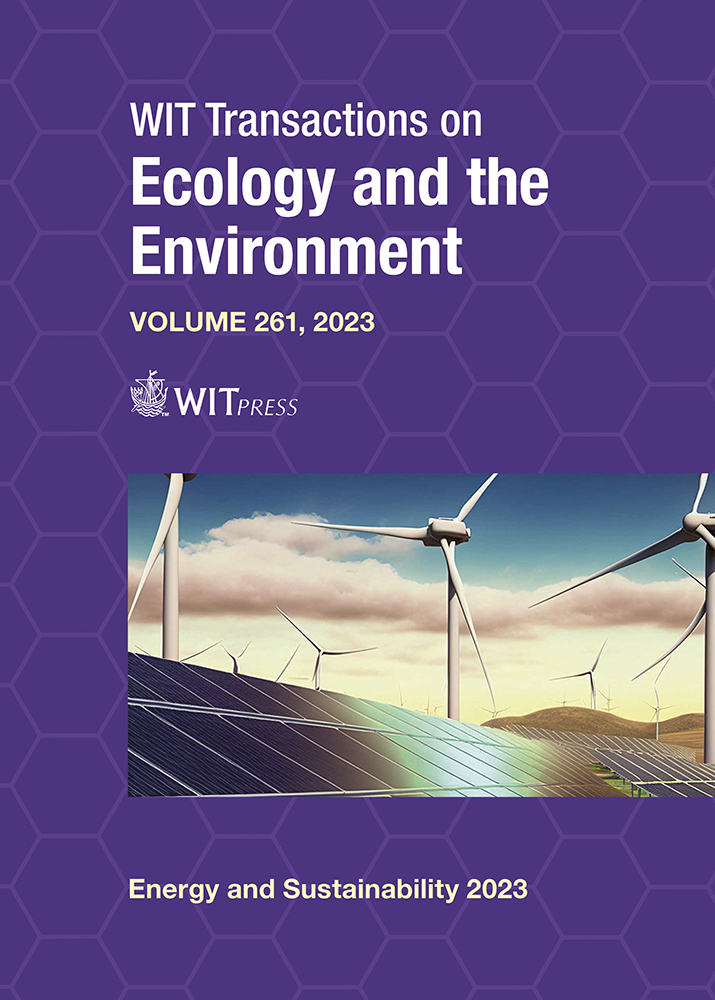STUDY OF THE UNDERLYING FACTORS DRIVING HOUSEHOLD RENEWABLE ENERGY TRANSITIONS IN NIGERIA
Price
Free (open access)
Transaction
Volume
261
Pages
13
Page Range
115 - 127
Published
2023
Paper DOI
10.2495/ESUS230101
Copyright
Author(s)
DAMINABO POKUBO, AMIN AL-HABAIBEH
Abstract
Nigeria has in abundance various forms of energy resources that can drive sustainable development in various sectors of the country. Energy resources such as crude oil, natural gas, coal and renewable energy resources like solar, wind, large and small hydro are all in abundance in Nigeria making it a country full of potential in the rapidly growing global energy sector. Despite the country’s sizable energy resources, most Nigerian households lack reliable access to electricity and clean cooking fuels due to ill-managed grid-based infrastructure, vandalism, and disruptions in gas supply. With a population of over 200 million, 60% of Nigerian households rely on conventional energy resources, known to be contributors to climate change. To address these challenges, the Nigerian government is currently pursuing its Renewable Energy Master Plan of transitioning to renewable energy resources to mitigate household dependence on conventional energy resources and diversify the country’s energy mix. However, the transition process has been met with setbacks and advances at a slow pace. Therefore, this paper investigates the underlying factors of household energy transitions in Nigeria by identifying barriers to the transition process and household energy motives. Based on country-level panel data collected between the years 2018 and 2022, the study indicates that energy stacking is very much prevalent in urban and rural households, characterised by significant consumption inertia of conventional and traditional solid biomass fuels, followed by partial substitution of firewood for liquified natural gas and fuel-based generators for solar panels. The study identified various transition barriers categorised under five underlying factors of household renewable energy transition: economic, policy, legal, technical, market, and household demographic factors. But the study concludes that policy and legal factors such as renewable energy subsidies could encourage household transition to renewable energy sources and mitigate barriers to the transition process.
Keywords
renewable energy, energy transitions, energy stacking, Nigeria, transition barriers





